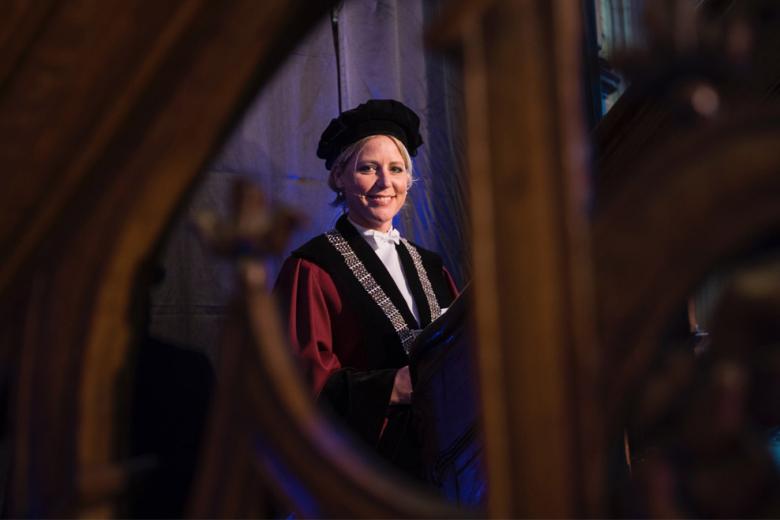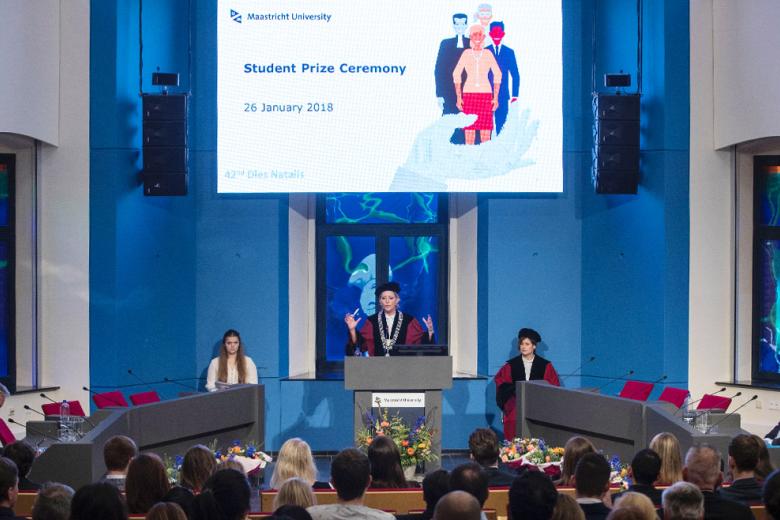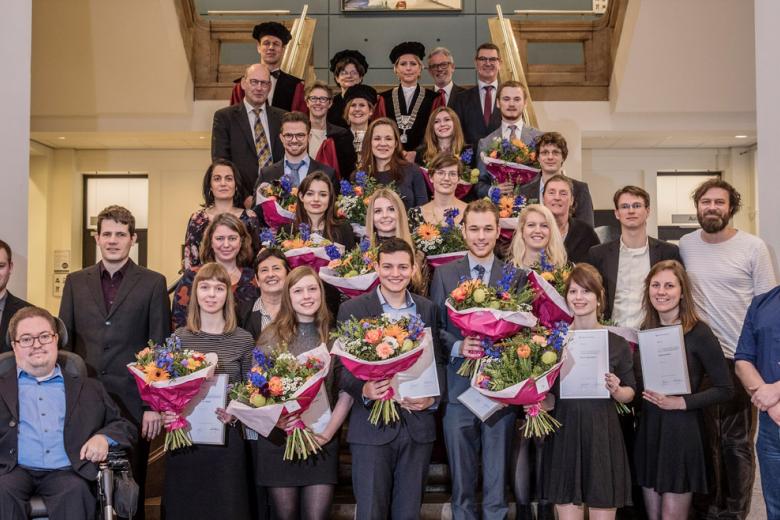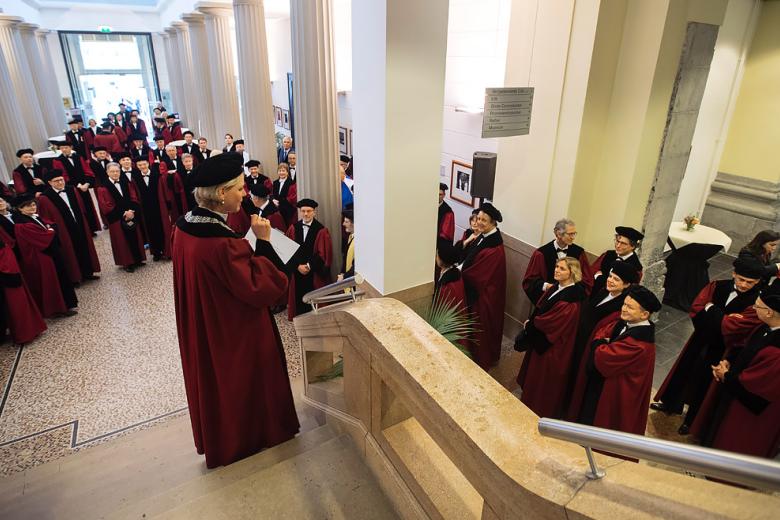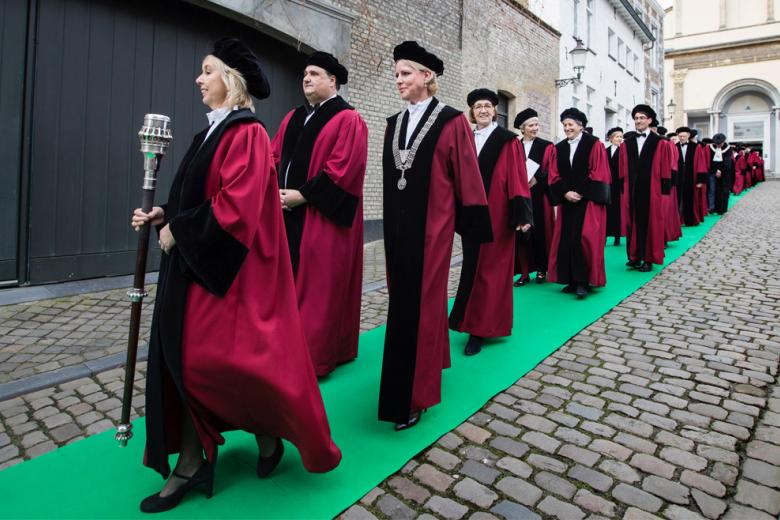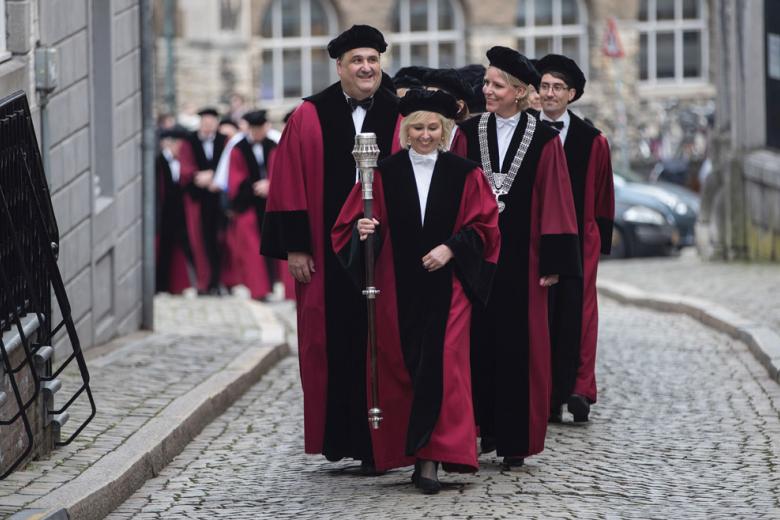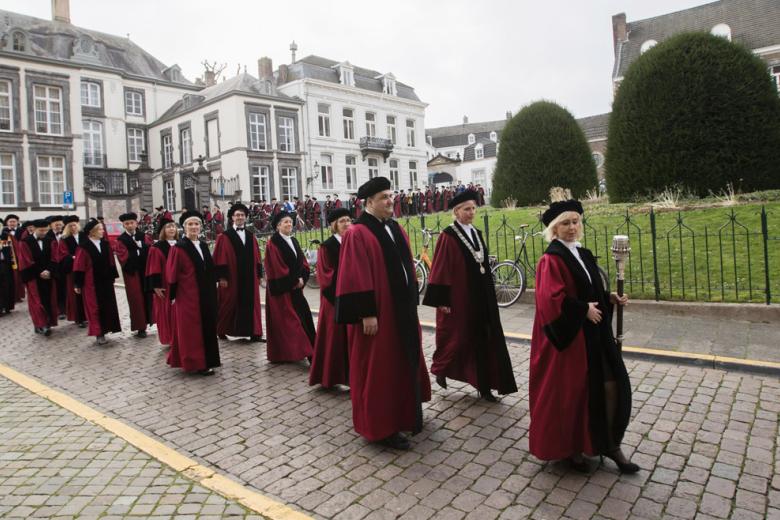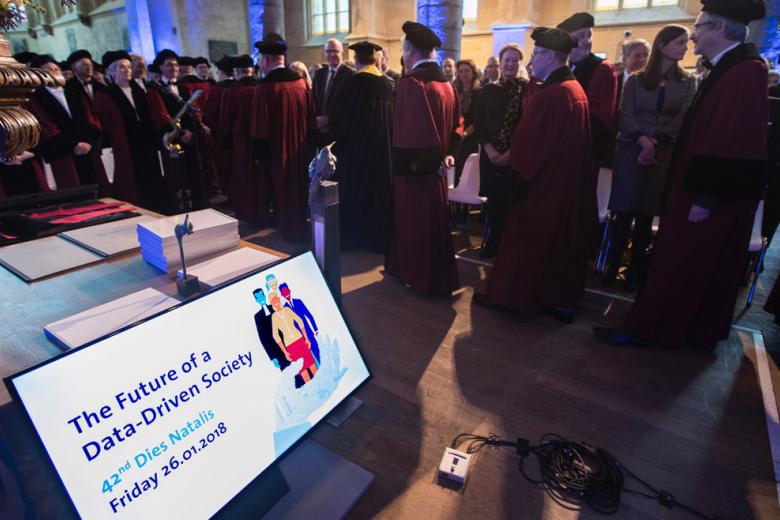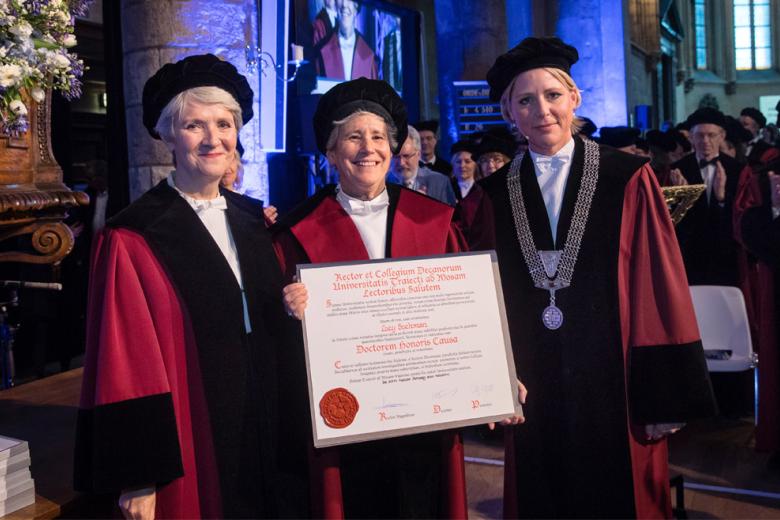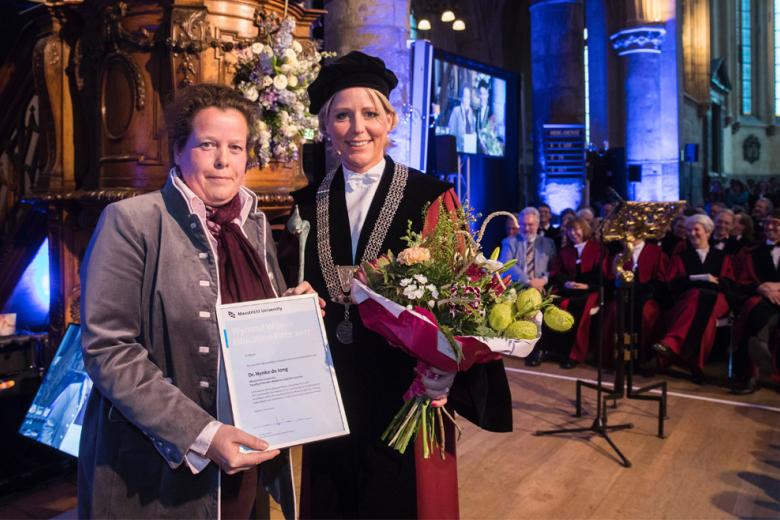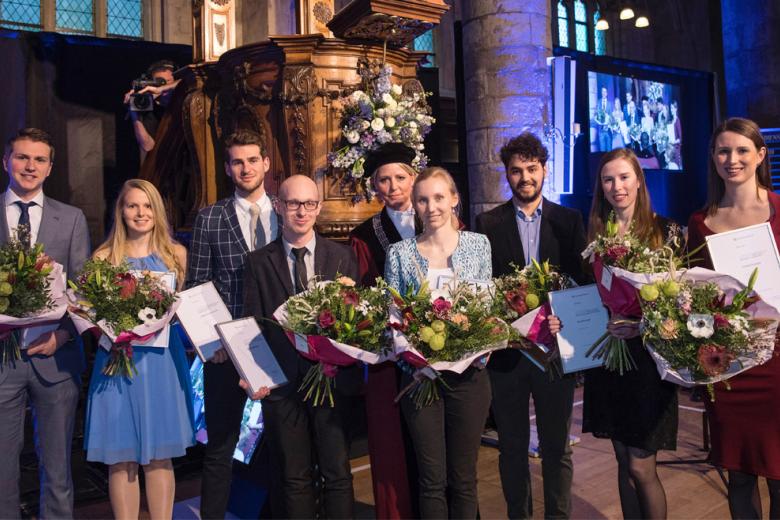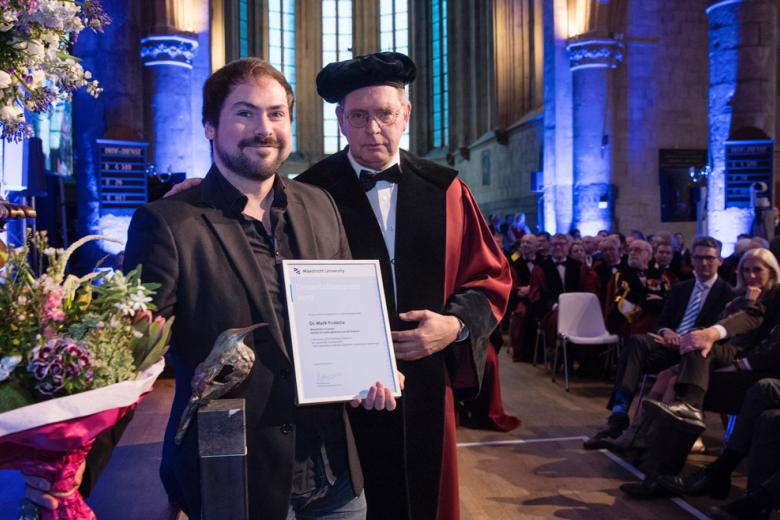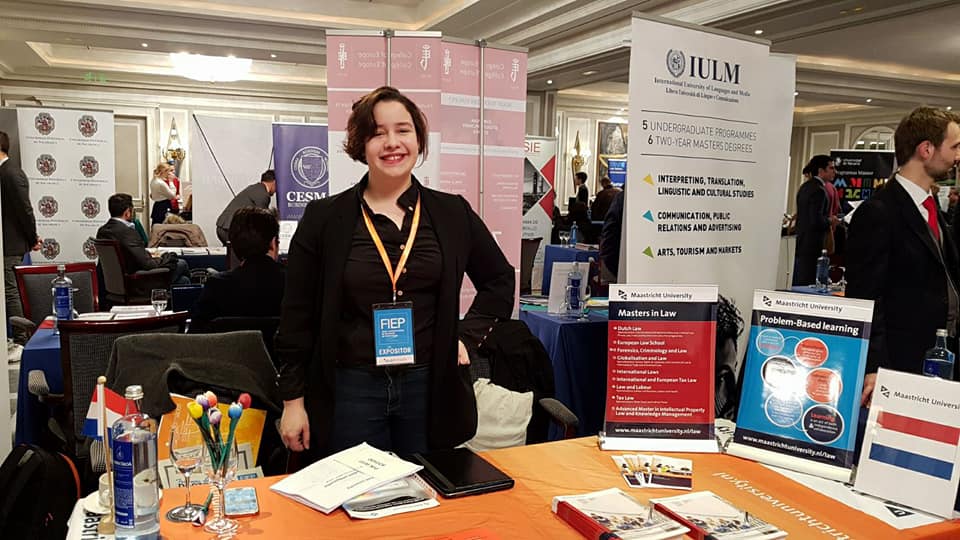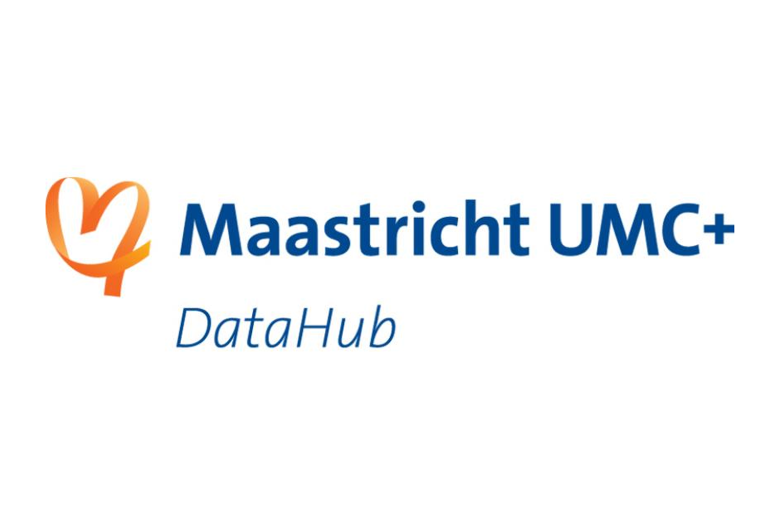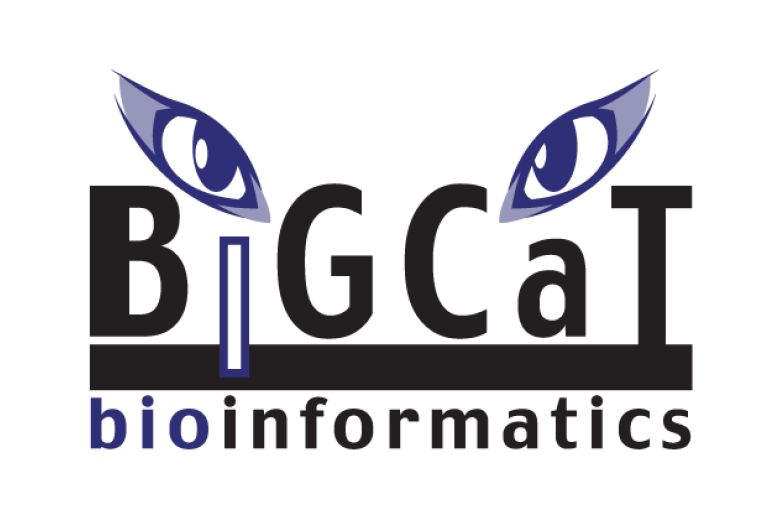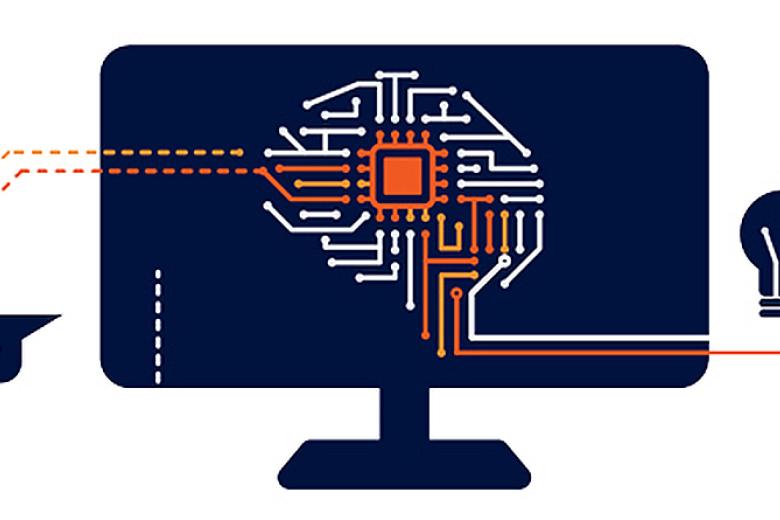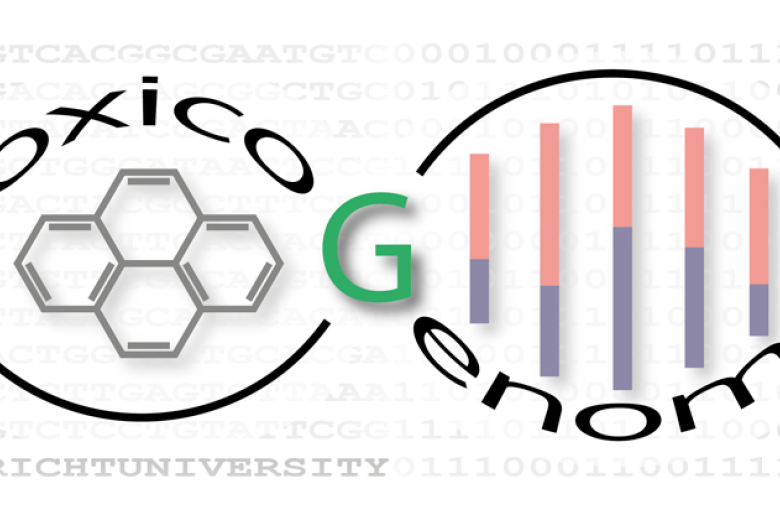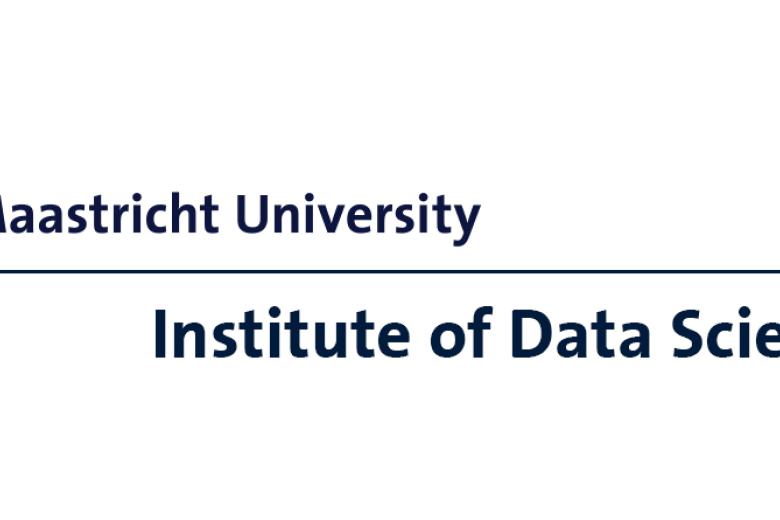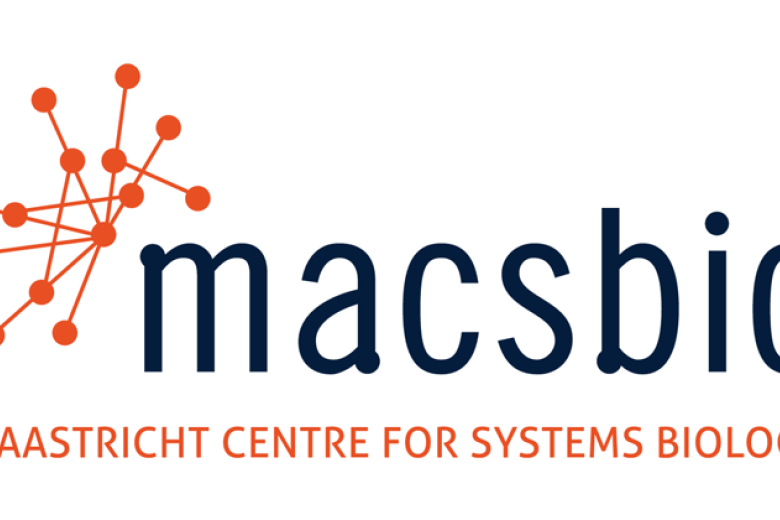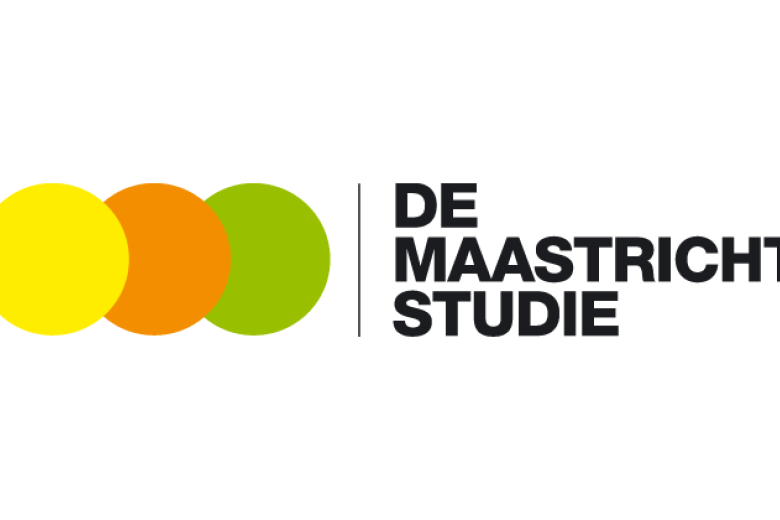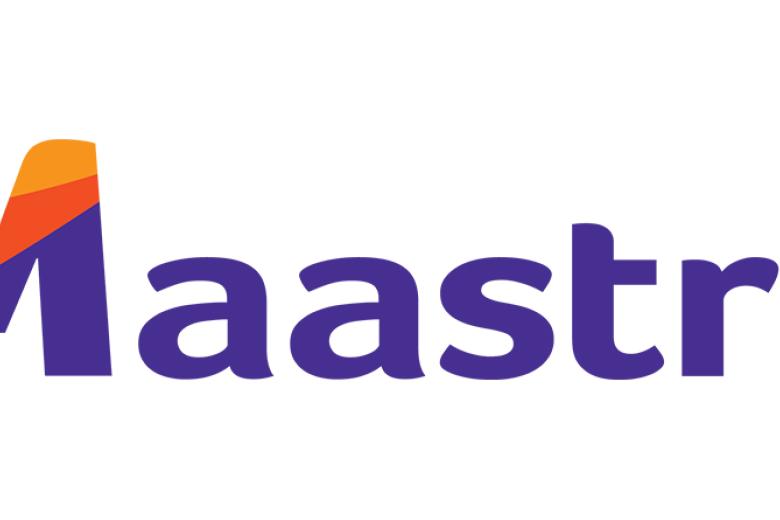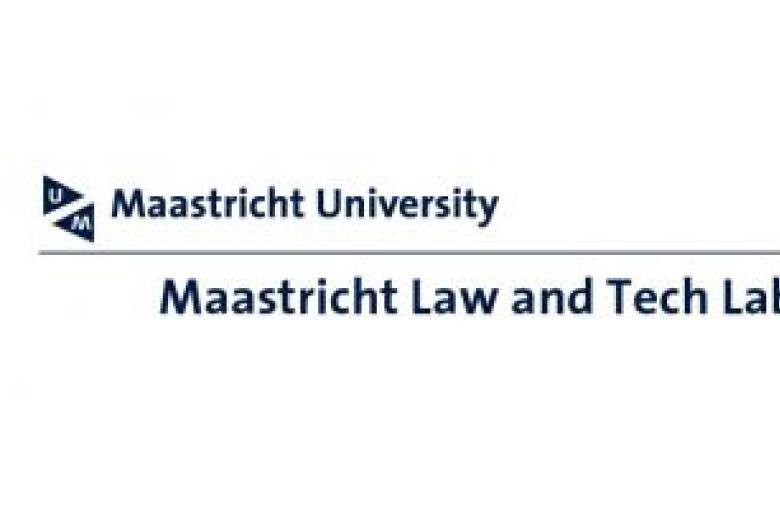Impressions from the Dies Natalis
Awards
An introduction to the Wynand Wijnen Education Prize, followed by an encomium to this year's winner Nynke de Jong, who was rewarded for her contribution to educational innovation within the Faculty of Health, Medicine and Life Sciences; in particular for her contribution to the Virtual Learning Environment.
The 2017 Dissertation Prize went to Mark Podesta for his doctoral thesis entitled ‘Time dependent verification of dynamic external beam radiotherapy.’
Prof Carole Goble
Prof Carole Goble (University of Manchester) received an honorary doctorate from the Faculty of Humanities and Sciences. Watch a brief profile and the bestowal at the degree.
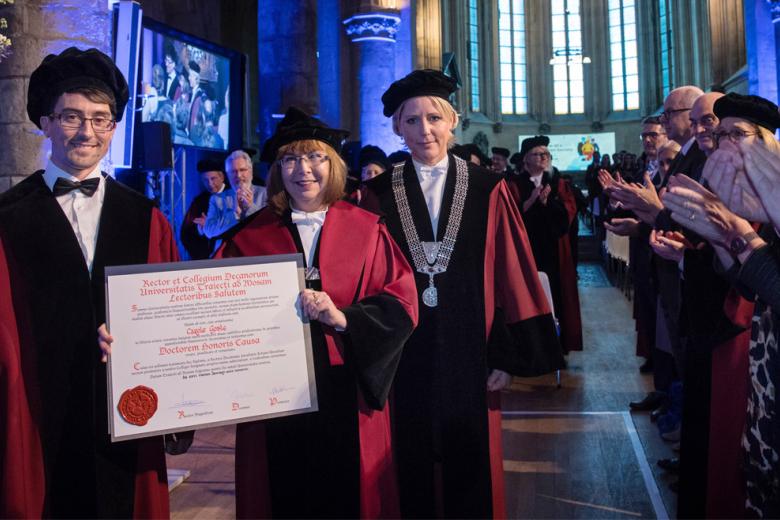
Prof Lucy Suchman
Prof Lucy Suchman (Lancaster University) received an honorary doctorate from the Faculty of Arts and Social Sciences. Watch her profile and the bestowal.

Symposium
Both recepients gave a lecture at the symposium 'The Future of a Data Driven Society' on the day before the Dies, which also saw the official launch of the Institute of Data Science.
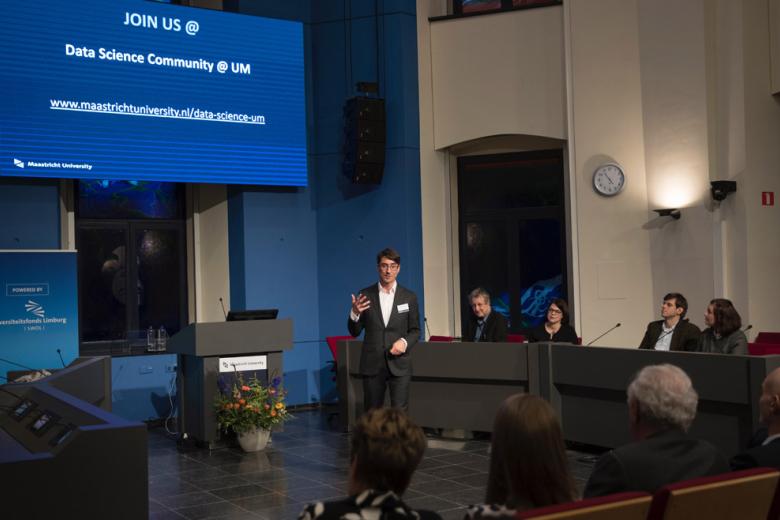
Dies Lecture - Dumontier
Michel Dumontier, Professor of Data Science, gave a lecture entitled: “A social and technological infrastructure for data-driven science”.

Dies Lecture - Wyatt
Sally Wyatt, Professor of Digital Cultures, gave a lecture entitled: “Where is the knowledge we have lost in data?”
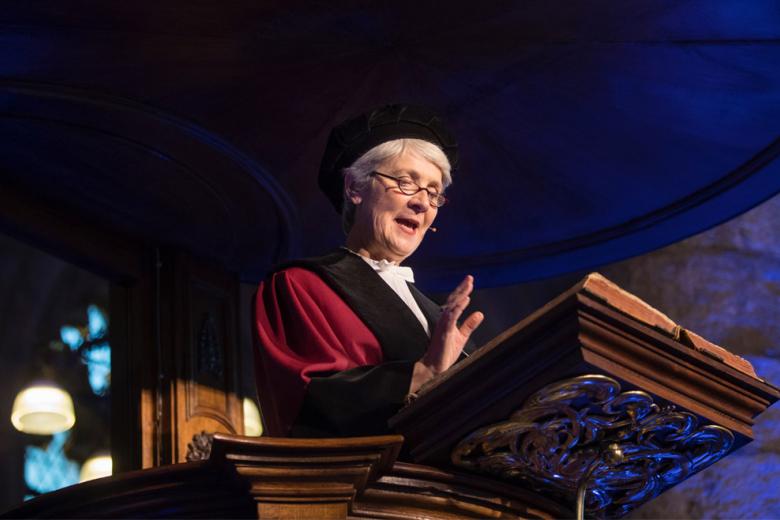
Welcome from the rector
Rector Rianne Letschert welcomes the audience and introduces this year's theme in her opening speech.
